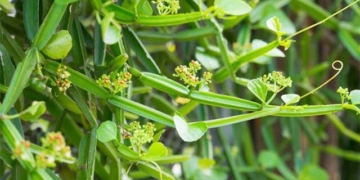In light of the avian influenza looming as a global disaster for humanity, urgent meetings are being convened across continents to discuss coordinated responses.
 Countries in the South Pacific are holding a summit in Papua New Guinea from October 25 to 27. Australia has also announced it will host the first APEC (Asia-Pacific Economic Cooperation) summit on avian influenza on October 31 and November 1. “This meeting will review both levels: how far preparations have come and what more is needed to improve the readiness of each economy,” said Foreign Minister Alexander Downer.
Countries in the South Pacific are holding a summit in Papua New Guinea from October 25 to 27. Australia has also announced it will host the first APEC (Asia-Pacific Economic Cooperation) summit on avian influenza on October 31 and November 1. “This meeting will review both levels: how far preparations have come and what more is needed to improve the readiness of each economy,” said Foreign Minister Alexander Downer.
At the Ottawa Conference (Canada), health ministers from 29 countries at risk of avian influenza outbreaks, along with specialized organizations from the United Nations, gathered for two days on October 24 and 25. There, FAO Director-General Jacques Diouf stated that “protective measures are needed in case the H5N1 virus transmits between humans, but that is a second line of defense,” emphasizing that the “real battle” is to address the spread of the disease among poultry.
According to Diouf, approximately 140 million birds have been culled in Southeast Asia, causing about $10 billion in losses for these countries. So far, the world has recorded 120 cases of H5N1 virus infection in humans, with 60 fatalities.
In Europe, Croatia has confirmed a new H5 virus outbreak in recently deceased swans in a lake area located 15 kilometers from where the first six swans died from avian influenza. Croatia has just completed the culling of over 10,000 birds near the infected area. In Russia, a new outbreak has also been detected in the Altai region of southern Siberia. Authorities reported finding avian influenza antibodies in the blood of 59 deceased birds across seven different farms in the village of Pokrovka.
In Asia, the situation is equally grim. Indonesia has reported that avian influenza has claimed its fourth victim in the country. China has announced a new outbreak in Anhui Province. Thailand has reported that avian influenza has spread to 39 provinces, covering more than half of the country. As of October 24, Thailand has at least six new suspected cases, raising the total number of infections in Thailand since late 2003 to 19, with 13 fatalities.
Regarding Tamiflu medication, on October 24, Canada expressed concerns that “the international community is worried about Roche’s hesitation to allow the production of generic drugs to protect millions of people from the avian influenza pandemic.”
THUY TUNG (Novosti, AFP, Reuters, BKP, JP)

















































